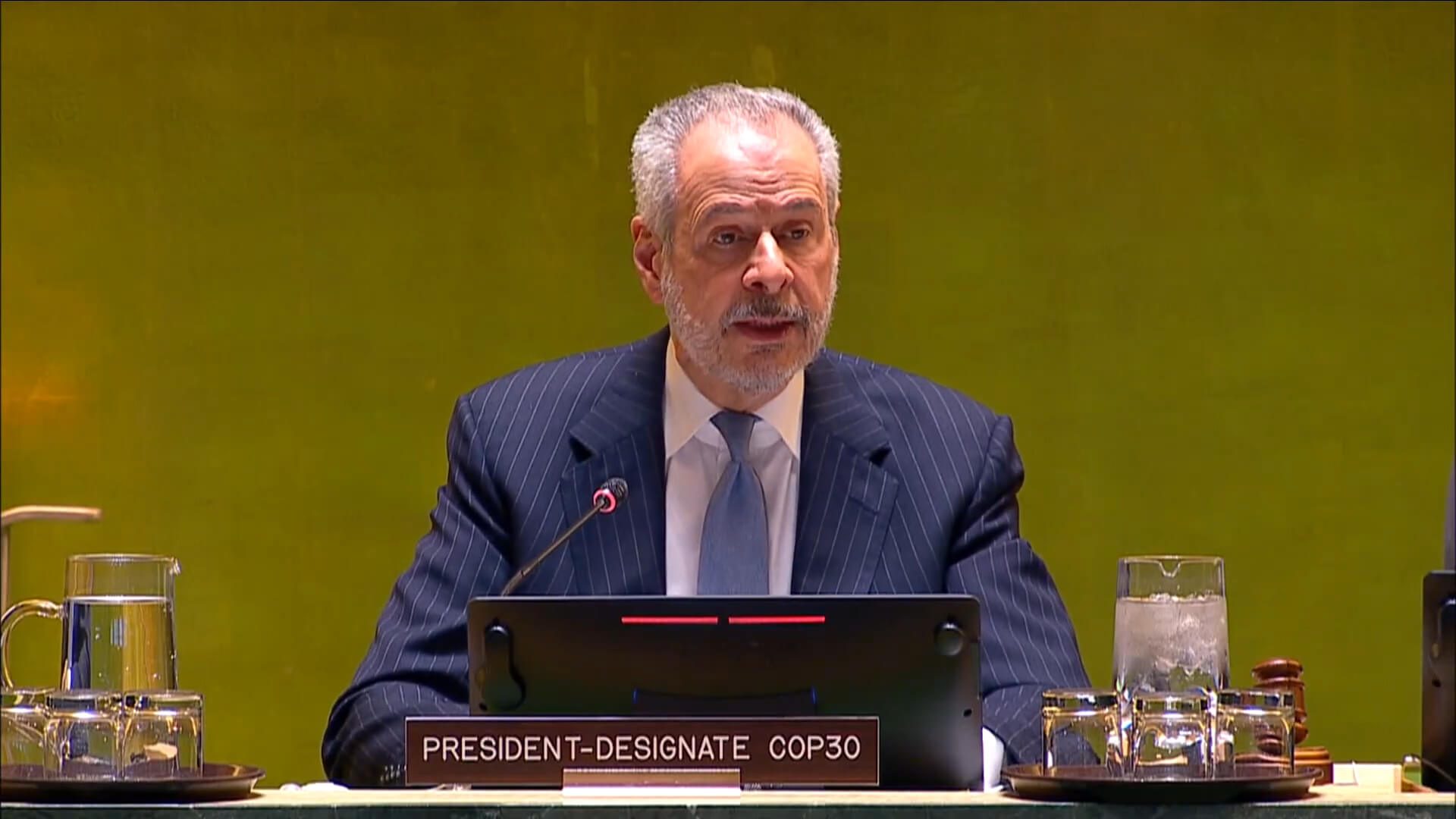Brasil leads COP30 agenda to accelerate and strengthen climate governance at the UN
At the UN, COP30 President André Corrêa do Lago highlighted the following priorities for COP30: increasing the effectiveness of negotiations, encouraging countries to adopt highly ambitious NDCs, increasing focus on climate adaptation, and fostering synergies between the climate agenda and the Sustainable Development Goals (SDGs).

"Given the urgency and the complexity of our task," Ambassador André Corrêa do Lago told the United Nations General Assembly on February 5, "we must strengthen climate governance and ensure agility, preparation and anticipation in both decision-making and implementation. The informal meeting aimed to present priorities and preparations for COP30 (United Nations Climate Change Conference).
According to COP30 President, Brasil aims for the discussions leading up to the conference to provide a "decisive push" for protecting and expanding the institutional legacy of the COP. He emphasized the importance of connecting negotiations to real-life outcomes and accelerating the implementation of the Paris Agreement with positively impact the multilateral climate regime, as well as the global governance and financial architecture.
"We need to enter a new era that transcend mere negotiation while continuing to strengthen the regime. We must implement the agreements we’ve made. COP30 should mark a significant transition from the negotiation phase of the regime. The Paris Agreement is working, but we need to act more swiftly,” the Ambassador remarked.
Towards more ambitious NDCs
The Ambassador underscored COP30's commitment to leveraging processes and mechanisms within and outside the UNFCCC (United Nations Climate Change Secretariat) to achieve the long-term goals of the Paris Agreement. This includes urging countries to commit to more ambitious Nationally Determined Contributions (NDCs). "National leaders need to deliver on their commitment to limit the temperature increase to 1.5 degrees Celsius. Lives, future jobs, and healthy environments depend on it,” he stressed.
André Corrêa do Lago indicated that the conference in Brasil is expected to produce a stocktaking of the NDCs. However, as they are national commitments and are not part of multilateral negotiations, the presidency of Brasil will encourage "a collective reflection on the obstacles that have hindered climate ambition and implementation".
Adaptation at the center of the debate
As the world confronts and recovers from extreme weather events, the ambassador highlighted an urgent need to ensure that 2025 becomes a pivotal year for climate adaptation and national adaptation plans. "Adaptation is no longer an option, nor does it compete with mitigation. Based on the progress made on the Global Adaptation Goal (GAG) at COP28 and COP29, we must fulfill our legal mandate on indicators in the work programme," he asserted.
He further emphasized that the climate agenda must seek synergies with the Sustainable Development Goals (SDGs), "through strong public participation," said André Corrêa do Lago. "There is an urgent need to address the interrelated global crise of climate change and biodiversity loss in a comprehensive and synergistic manner, in the broader context of achieving the SDGs," he stated.
The Ambassador also highlighted the need to recognize the role and contributions of indigenous and local communities in managing nature and leading action to combat climate change, especially given the disproportionate impact of the crisis on these groups.
English version: Trad. Bárbara Menezes
Review and editing: Enrique Villamil
